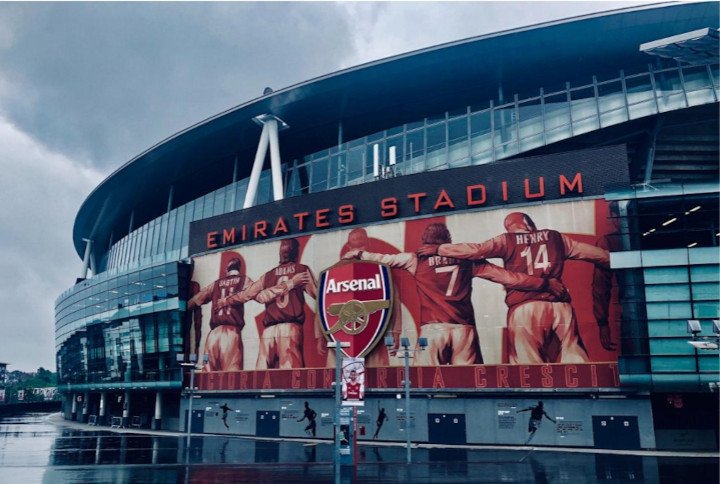25/26 Premier League: Three Managers Who Could Come Under Pressure Quickly
The countdown is almost over. On August 14th, the floodlights at Anfield will pierce the Merseyside night sky as Liverpool kick off their title defence as they host Bournemouth, and if their summer spending spree is anything to go by, the Reds mean business.

Arne Slot has already managed to bring Florian Wirtz, Jeremie Frimpong, Hugo Ekitike, and Milos Kerkez to the club this summer, and another blockbuster is expected to be secured in the near future. That, of course, is Newcastle United hitman Alexander Isak, who has handed in a transfer request at St. James' Park in a bid to force his way to the champions. Should the Swede succeed and secure his move, then the online betting sites will surely slash odds on Liverpool claiming the title even further.
The popular Bovada betting site already has the reigning champions listed as a 2.70 frontrunner to win the Premier League again this season, a stark contrast to last term, when they were a distant third favorite behind Arsenal and Manchester City. Now, however, both those two make up the chasing pack, and the Reds are well clear.
But while Slot's position in the Anfield hotseat couldn't be any safer, some managers could be in trouble if they get off to a poor start. Here are the three we think are most likely to come under pressure in the opening weeks of the 2025/26 season.
Mikel Arteta
Has there ever been a more fascinating contradiction than Mikel Arteta’s Arsenal? Five and a half years of transformative work, a tactical structure that turned mediocrity into title contention, and a fanbase that has swung between exultation and exasperation. Three consecutive runners-up finishes, a Champions League semifinal run that had the Emirates rocking, and a brand of football that has finally reignited the red half of North London.
But football history is written in silver, not statistics, and when it comes to securing a major trophy, patience is beginning to wear thin. Arteta’s incrementalism-admirable as it’s been-has not broken the cycle of ‘almost.’ The 2025/26 season begins brutally: within their first six fixtures, Arsenal clash with Manchester United, Liverpool, Manchester City, and Newcastle United. One look at that calendar, and the stakes are clear.
For Arteta, every early result will be a referendum. Dropping points is not an option; the expectation now is a tangible reward. Should Arsenal stutter through those heavyweight showdowns, the narrative will shift in the blink of an eye. In an era where second best is no longer tolerated, even the architect of a revolution could face the wrath of a restless crowd and an impatient boardroom.
Ruben Amorim
Old Trafford-a theatre haunted by its own past success. Few incoming managers have faced greater pressure than Ruben Amorim. Last year, United’s 15th-place finish was more than a low point: it was their worst league standing in four decades, shattering reputations and patience alike. Brought in to fix a crisis, Amorim instead presided over a campaign defined by defensive chaos, tactical uncertainty, and a Europa League final defeat that only twisted the knife.
MAN UNITED OWN GOAL RIGHT BEFORE HALFTIME 😱
— Bovada (@BovadaOfficial) May 21, 2025
Tottenham lead 1-0 #UELfinal
Live odds to lift the 🏆:
Manchester United +205
Tottenham -255
pic.twitter.com/bJiVYuNWaS
The numbers are stark. Under Amorim, United averaged fewer than 1.2 points per match. Goal difference? Negative. A tsunami of high-profile signings was needed this summer, and only Bryan Mbuemo and Matheus Cunha have arrived. Even so, improvement must be instant, visible, and dramatic.
The Portuguese boss walks a razor’s edge. A rocky start, with the weight of Old Trafford’s expectations pressing down, could bring the curtain down before October. The board’s financial commitments, the relentless press cycles, and the collective yearning of millions create a combustible atmosphere. For Amorim, there are no lifelines left-only the cold certainty of results, or the swift hand of the sacking season.
Graham Potter
Graham Potter was meant to be West Ham’s antidote to stagnation, their passport to the new age of possession-based, progressive football. But Premier League reality bites, and the Hammers, if anything, regressed. West Ham’s attack withered, netting just 46 goals last season, the third worst of the teams that avoided the drop.
The Hammers faithful crave direction potent, visible progress. Potter’s approach has been as much about concept as execution, and so far, it’s the latter that’s failed him. The obsession with possession is not currently matched by cutting-edge finishing or defensive coherence. In a league where pragmatism crushes idealism, early returns matter more than philosophies.
Potter faces a paradox: stick to his principles and risk further embarrassment, or compromise and engineer immediate results. The London Stadium isn’t patient. The fixture list offers no shelter either, with London derbies against Chelsea, Spurs, and Arsenal all coming before October 4th.
Early points are a non-negotiable if Potter is to avoid following a string of predecessors out the door. Failure to pick them up, and he could follow in the footsteps of so many before him by making his way out of the London Stadium revolving door.
